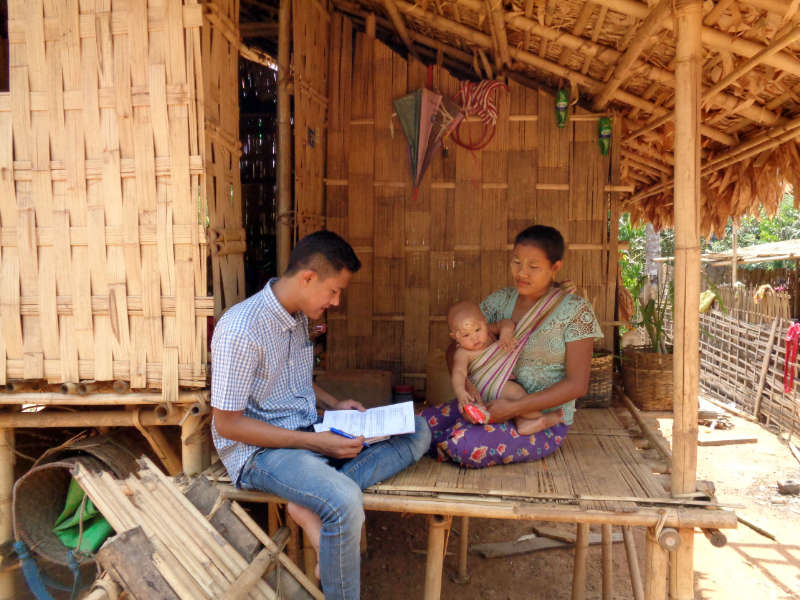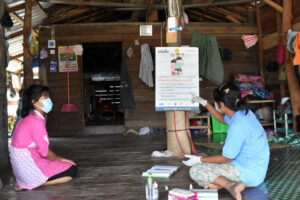A Defeat Malaria health facilitator gives a group health talk about health-seeking behaviors to villagers. Photo credit: URC
Myanmar
Myanmar’s population faces the threat of COVID-19, HIV, malaria, and tuberculosis, and the transnational threat of multidrug resistance. Basic health care, including maternal and child health needs to be improved; Myanmar’s maternal and child mortality are among the highest in the Greater Mekong Subregion. Many in Myanmar lack access to primary care.

In the past decade, Myanmar has made strides in infectious disease prevention and control, including malaria, and is successfully moving towards malaria elimination. Since 2012, Myanmar has achieved an 88% decline in reported malaria cases, and a 96% decline in reported malaria deaths. Civil society organizations and private sector partners play a key role in supporting efforts to reach vulnerable populations with advocacy, training, and delivery of health services.
URC plays a catalytic role supporting Myanmar’s goal of eliminating malaria by 2030. Our work began in 2011 under the Control and Prevention of Malaria (CAP Malaria) Project, which supported the National Malaria Control Program, local government units, and collaborating institutions to strengthen the health system and improve the quality of malaria diagnosis, prevention, and treatment while promoting health-seeking behaviors related to malaria across the Greater Mekong Subregion.
URC’s work in Myanmar strengthens the health system and its information systems, advances community-based social and behavior change interventions, and improves quality of care of infectious disease and maternal and child health services.
Under USAID TB CARE II, URC supported improved management and care of drug-resistant TB cases. Under the USAID Applying Science to Strengthen and Improve Systems (ASSIST) Project, URC provided support to hospital staff to apply quality improvement approaches to their maternal and newborn care improvement projects. Through the Malaria Surveillance and Laboratory Quality Assurance Program, URC strengthened malaria data management and laboratory quality assurance systems.
Current Projects
- USAID Defeat Malaria Activity, focused on strengthening the local health system response to changing malaria epidemiological trends, including multidrug resistance and insufficiently sensitive malaria testing; and
- The World Mosquito Program Entomological Field Surveys in Selected High-Risk Dengue Transmission Areas Project, which surveys high-risk dengue fever transmission areas to gather information on mosquito populations to inform dengue control activities.
